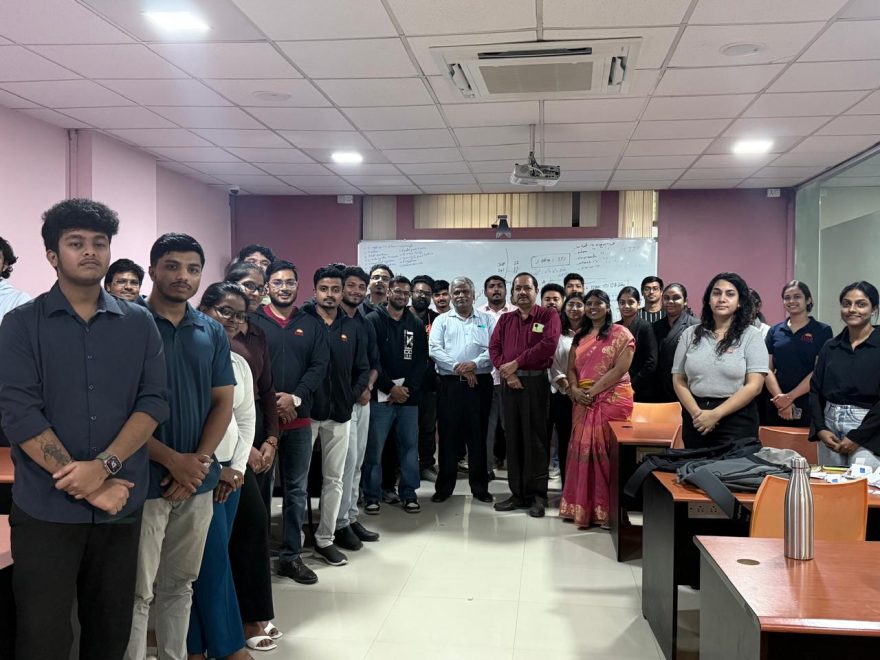The Lean Manufacturing Workshop (Lean Experiential Awareness Program – LEAP) was designed to help students understand the critical differences between traditional manufacturing and modern lean systems. By combining role-play simulations, interactive discussions, and quizzes, the workshop provided a unique opportunity to experience how lean manufacturing reduces waste, improves efficiency, and aligns production with customer needs. This hands-on session emphasized why organizations today must transition from batch-based, push strategies to demand-driven, pull systems.
Understanding Traditional Manufacturing Systems
At the start, students were introduced to traditional manufacturing systems, which typically operate on a push strategy. In this system, production is based on forecasts rather than real-time customer demand. Students role-played as production managers, supervisors, operators, and quality controllers in a batch-processing setup.
During the simulation, inefficiencies quickly became visible. The group faced overproduction, delays, and mismatches, demonstrating how batch processes often fail to meet customer requirements. The exercise highlighted common challenges such as excessive waiting time, low flexibility, and misalignment with customer needs—issues that many real-world businesses struggle with under traditional systems.
Transitioning to Lean Manufacturing Systems
The workshop then shifted focus to lean manufacturing principles. Unlike traditional models, lean emphasizes reducing waste, optimizing resources, and improving responsiveness to actual customer demand. Using a pull strategy, production was initiated only when a clear signal from customer demand was received.
Students re-enacted their roles under this system. The results were striking—production became faster, timelines were met, and resources were used more effectively. Faculty members introduced tools such as visualization boards, equipment effectiveness measures, and information-sharing techniques that reinforced the benefits of lean practices.
Breaking Misconceptions About Lean Manufacturing
A key takeaway addressed a common myth: lean manufacturing is not about cutting jobs. Instead, it enhances employee productivity by removing non-value-adding activities. With lean processes, employees can channel their efforts into innovation, problem-solving, and driving growth. This empowers individuals while also strengthening organizational performance.
Lean Manufacturing as a Mindset and Culture
The Lean Manufacturing Workshop made it clear that lean is more than a set of tools—it is a mindset and cultural shift. By experiencing both push and pull systems firsthand, students gained practical insights into efficiency, time management, and customer satisfaction. They learned that lean not only improves processes but also helps organizations deliver greater value while fostering employee engagement.
Future-Ready Skills with Lean Thinking
The LEAP workshop concluded with a powerful realization: transitioning from traditional batch-processing to lean systems is essential for modern industries. By reducing waste, improving efficiency, and aligning production with real customer demand, lean manufacturing enhances both organizational performance and employee contribution. Students left the workshop with practical knowledge of lean strategies, ready to apply them in real-world scenarios.
About ISBR Business School: ISBR Business School, located in Bangalore, India, is a premier institution dedicated to providing world-class education in business and management. Accredited by the NBA and recognized by the Association of Indian Universities and the Ministry of HRD, Government of India, ISBR has consistently been ranked as a platinum institute by AICTE-CII. With a diverse student body, a strong emphasis on industry collaboration, and a curriculum designed to foster innovation and leadership, ISBR Business School is committed to shaping the business leaders of tomorrow. The school’s robust placement record and partnerships with top global companies underscore its commitment to excellence and career readiness for its students

